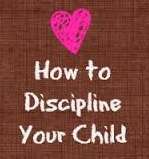By David Reynolds
We now live in a very liberal and permissive culture in which spanking is frowned on–yet, God’s Word makes it very plain that there is a time and a place in your discipline plan for the “rod”.
I would caution parents to use wisdom as to the age, the force, the location and the reasons for using this form of discipline. Our liberal culture is looking for excuses to criticize and prosecute Christian parents.
I believe this form of discipline should be saved for very serious infractions. There are other forms such as “time-out” or withholding of privileges that can be used for less serious family violations. Spanking should be saved for those times when your child has directly and knowingly disobeyed your direct instructions and is openly defying your authority. God wants parents to train their children to listen and to obey their voice. If their children are defiant they must be chastised.
“Do not withhold discipline from a child, if you punish him with a rod, he will not die. Punish him with the rod and save his soul from Death.” Proverbs 23: 14 [N1171
I would also use spanking in life threatening situations– such as running out into a busy street. I would want to make a lasting impression as to the danger. I would use spanking here as a “shock” treatment to make sure the child would stop the next time the impulse comes to run out in front of a speeding truck.
“He that spareth his rod hateth his son but he that loveth him chasteneth him betimes” [Proverbs 13:24]. The word “betimes” lets us know that this is not to be overused. Any form of discipline can lose it’s impact if used too often—that is why it is important to save spanking for the times your child is in defiance and is lifting up his will against yours. Remember you are trying to bend the will, not break the spirit.
Spanking should never be used in anger, and it never should be used when your child has had an accident. Since spanking is not to be used often, you want this to be a “memorable” occasion. It is important to use as much time, love and ritual as possible. Make spanking a bitter yet sweet memory. Never spank in public. I recommend the following steps:
- Send the child to his room after telling him he has ‘earned’ a spanking and give the reason. Do this without anger–yet in an assertive voice. Never spank in public.
- Wait long enough to get your emotions under control before going to the room.
- Tell the child again. the reason for the spanking—the reason should not be a
surprise.
- Stretch the child over your knee or over the bed with his hands stretched out–in order not to hit the hands.
- Use a small paddle of a broad wooden spoon–something that will sting, and make a lot of noise–but not leave bruises nor break the skin.
- Apply to the ‘bottom’, the ‘seat of un derstandime—only enough ‘spats’ to bring tears.
- Let the child grieve–leave the room for a time.
8 Come back later to talk, train, pray and love the child.
- Restate the rule and the reason for the spanking
If you follow these steps you shoUld not have to spank often. Spanking is too often used as a last resort for a lost cause!
Spanking should be started early enough in life to make an effect without undo force. I also recommend that you stop using spanking by age eleven. You usually do not remember the spankings you received before you were five–but you remember and resent every one of the ones you received after twelve. Do it when they are young and you seldom will have to do it when they are adolescents.
Spanking: don’t refuse it, don’t overuse it—don’t abuse the child.
“I will punish their sin with a rod, their iniquity with flogging, but I will not take my love from him nor will 1 ever betray my faitttfulness.”
Psalms 89:32 [NM AA’




Very well written! I will incorporate this into a Bible study! Thank you!